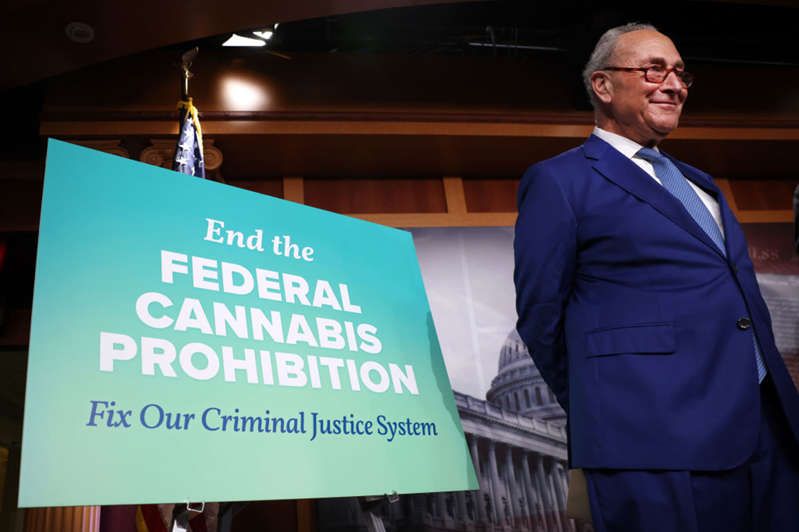Apple’s new cannabis app rules benefit MJ businesses, but Google a holdout
Published 7 hours ago | By
Solomon Israel
(This story has been updated to correct the titles of Weedmaps’ Justin Dean and Caliva’s Dennis O’Malley.)
Cannabis delivery and technology companies say that Apple’s recent decision to let iPhone apps process marijuana transactions is already bringing benefits after these businesses launched new apps for Apple’s iOS smartphone operating system.
Upsides of the change to Apple’s App Store rules for cannabis companies and marijuana tech platforms include:
- Seamless ordering and purchasing, because cannabis consumers can perform transactions within apps instead of having to complete them via a mobile web browser.
- Greater willingness for online shoppers to actually purchase cannabis.
- Improved customer engagement.
- An early increase in orders.
“For the consumer who is looking specifically to find cannabis and purchase cannabis … now they can go to the Apple (App) Store and look for an app to find and purchase weed, whereas before that was not available,” said Justin Dean, chief technology officer of WM Technology, the parent company of the cannabis dispensary directory and advertising platform Weedmaps.
Weedmaps is among the companies now offering an updated iPhone app.
Apple’s
App Store Review Guidelines, updated June 7, ban “facilitating the sale of controlled substances” but make an exception for “licensed or otherwise legal cannabis dispensaries.”
“Apps that facilitate the legal sale of cannabis must be geo-restricted to the corresponding legal jurisdiction,” the guidelines note.
However, the Google Play Store – Google’s equivalent to Apple’s App Store for Android OS smartphones – in 2019
banned apps that facilitate cannabis sales in 2019.
The ban on “apps that facilitate the sale of marijuana or marijuana products, regardless of legality”
remains in effect. It forbids in-app cannabis orders, apps that arrange marijuana delivery or pickup as well as in-app sales of THC products such as CBD oils containing THC.
New iPhone cannabis apps
San Francisco-based cannabis delivery platform Eaze
claimed first place in the race to launch a “full-functional cannabis delivery” iPhone app in early July.
Eaze’s previous iPhone app allowed consumers to view products, but it required transactions to be completed through a mobile web browser, according to Elizabeth Ashford, Eaze’s vice president of communications and public affairs.
That “was always an unsatisfactory experience for customers, because websites are hard to navigate on your phone if you’re trying to complete a purchase,” she said.
Ashford noted that California state assembly member Evan Low, whose district includes the Silicon Valley,
wrote Apple CEO Tim Cook in 2019 to encourage a change to Apple’s cannabis app rules, arguing that the policy gave “inadvertent support for illegal (cannabis) suppliers.”
Since the company reversed course, Low said in a statement to
MJBizDaily that he was “thankful that Apple made this change in policy because these apps should help reduce the sale of cannabis on the black market.”
Now, Ashford said, in-app cannabis commerce “encourages conversion” from simply browsing the app to actually making purchases as well as encouraging repeat purchases.
WM Technology’s Dean said the in-app ordering in Weedmaps’ iPhone app provides “a very seamless and intuitive experience.”
“You can find and order cannabis directly from within the app itself, from licensed dispensaries,” he said.
“It looks similar to purchasing online as you would expect from other shopping experiences, whether that be food or groceries or whatnot.”
Apple does not take a cut of those in-app transactions, Dean said.
Measurable benefits to in-app transactions
San Jose, California-based cannabis firm The Parent Company launched its new Caliva cannabis pickup and delivery iPhone app
with transactional functionality in July.
Caliva’s previous app was “information only” and lacked “shoppable features,” said Dennis O’Malley, chief operating officer of The Parent Co. and president of Caliva.
O’Malley said the improved app gives iPhone users the choice to opt into notifications, allowing for a closer relationship with customers.
“What we’re seeing is, in addition to an increase in engagement (with) our app, we’re seeing an increase in engagement of our loyalty program, Caliva Club.”
After launching the new app, “very quickly, we saw that 9% of our online transactions are happening through our mobile app,” he said.
Conversion rates to purchases increased by more than 25% compared to Caliva’s web browser conversion rate on mobile and other devices, O’Malley added.
Eaze said its new, shoppable app has resulted in a 7% increase in total first deliveries and that iPhone app users are now 50% more likely to make a purchase than before.
The updated Weedmaps iPhone app was released Aug. 9, and Dean said early results showed the total volume of orders placed from both the app and the company’s website increased by more than 10% in most regions.
Weedmaps said its app now allows in-app cannabis orders in 15 states plus Puerto Rico and Ontario, Canada.
Will Google follow?
Apple’s iOS controlled 56% of U.S. smartphone operating system market share in the first half of 2021, according to Massachusetts-based market intelligence firm International Data Corporation (IDC).
The remaining 44% was controlled by Google’s Android OS.
Apple did not respond to
MJBizDaily’s requests to explain the impetus behind relaxing its cannabis app rules.
Likewise, Google did not answer inquiries regarding whether it might review its in-app marijuana transaction policy in light of Apple’s move.
Both technology companies care about how apps on their platforms are used to complete purchases “because they have a family-friendly storefront, and it’s always been about maintaining those values,” said Daniel Bader, a smartphone industry journalist and editor in chief of Android Central.
“By and large, the (app) stores want to be perceived as a curated selection of high-quality apps that adhere to the basic moral and legal structures of the countries in which they operate,” he said.
In terms of cannabis, Bader believes Apple “sees the writing on the wall.”
“(President) Joe Biden is in power. … There’s a very good chance that marijuana will be
federally legal by the time his term ends.
“And I think Apple has basically weighed the upside and downside of making these apps available to people in (legal cannabis) jurisdictions.”
When Google Play banned apps facilitating cannabis sales in 2019, Bader observed, fewer states had legalized marijuana.
Other marijuana-related concerns might still be standing in the way of change at Google, Bader added.
First, phones running Google’s Android OS tend to be cheaper than iPhones and are therefore more likely to be used by children.
“It’s possible that they’re not doing this because they know that the demographics are different … and that more kids may just have free access to the (Google) Play Store,” he said.
Also, Google remains under “intense regulatory scrutiny” regarding anti-competitive practices in the U.S.
“This has nothing to do with that,” Bader said.
“But Google may not want to ruffle any feathers in Washington by enabling people to find cannabis, even if it’s legal in certain jurisdictions, if it’s not yet federally legal.”
Ryan Reith, an IDC vice president who oversees mobile device research, speculated that Google will eventually follow Apple’s lead.
“I’m a believer that the federal government will actually regulate (cannabis), somewhat like Canada has,” he said.
“There’s no question in my mind that Google – if they haven’t already, at that point – (will) approve this and allow it.”
If and when Google changes its marijuana app policies, companies with new iPhone cannabis apps are raring to update their Android apps.
“When Android shifts to go do that, we will absolutely be ready,” The Parent Co.’s O’Malley said.
WM Technology’s Dean said Weedmaps would want to relaunch its Android app “as soon as possible.”
“In general, we would want to create the same holistic in-app experience for our consumers and industry, similar to the iOS app.”
Solomon Israel can be reached at solomon.israel@mjbizdaily.com.






 ? The growers will pass on any other costs directly to the consumer . The medical people on disability are being forced to buy more expensive meds. What other medicine is taxed like weed ?
? The growers will pass on any other costs directly to the consumer . The medical people on disability are being forced to buy more expensive meds. What other medicine is taxed like weed ?